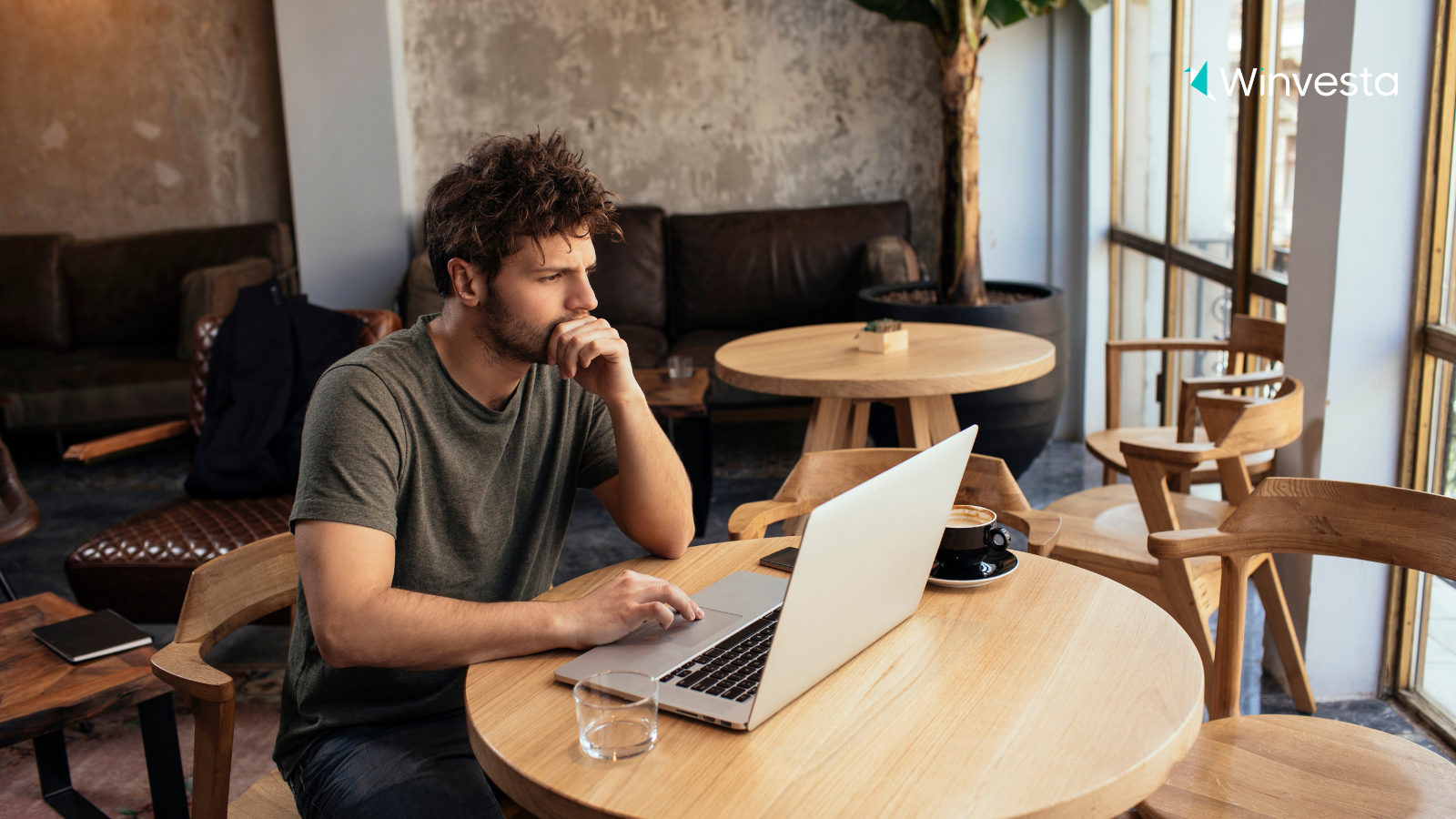Contents
Health, wellness, and productivity hacks for remote freelancers
5 minutes read
28 June 2025

Working from home sounds like a dream until you realise you haven't left your pyjamas on for three days. Your back aches from hunching over your laptop, and your kitchen has become your office, bedroom, and entertainment centre, all rolled into one.
Remote freelancing offers incredible freedom, but it also brings unique challenges. Without the structure of a traditional office, maintaining health, wellness, and productivity becomes your responsibility alone. The good news? Small changes can make a huge difference.
Create boundaries that work.
Your workspace shapes your mindset. When your bed doubles as your office chair, your brain struggles to switch between work and rest modes.
Set up a dedicated workspace, even if it's just a corner of your living room. Use a small table, add proper lighting, and keep it organised. When you sit there, your mind knows it's time to work.
Time boundaries matter just as much as physical ones. Set specific work hours and stick to them. Turn off notifications after 6 PM. Your clients will respect you more when you respect your own time.
Sarah, a graphic designer from Portland, transformed her productivity by creating a simple ritual. She makes coffee, opens her laptop, and puts on her "work playlist" to signal the start of her day. At 5 PM, she closes the computer and changes clothes. This simple routine helps her brain transition between work and personal time.
Move your body throughout the day.
Sitting for hours wreaks havoc on your health. Your muscles tighten, your circulation slows, and your energy crashes.
Try the 20-20-20 rule: every 20 minutes, look at something 20 feet away for 20 seconds. This simple habit reduces eye strain and gives your brain a quick reset.
Set a timer to remind yourself to move every hour. Try doing jumping jacks, stretching your arms above your head, or walking around your space. These micro-breaks help boost circulation and maintain steady energy levels.
Consider a standing desk setup. You don't need expensive equipment. Stack some books under your laptop or use a kitchen counter as a workspace for part of the day. Alternating between sitting and standing keeps your body engaged and active.
Fuel your body for sustained energy.
Your food choices have a direct impact on your productivity. Skipping meals or relying on coffee and snacks can lead to energy crashes and brain fog.
Eat protein-rich meals to help maintain steady blood sugar levels. Include nuts, eggs, lean meats, or legumes in your meals. Protein keeps you full longer and provides sustained energy.
Prep healthy snacks in advance. Cut the vegetables, portion out the nuts, or prepare the fruit as needed. When hunger strikes, you'll reach for nutritious options instead of processed foods.
Stay hydrated throughout the day. Keep a water bottle at your desk and sip regularly. Dehydration causes fatigue and reduces concentration. If plain water feels boring, try adding lemon slices or cucumber for a refreshing flavour.
Master the art of focused work.
%20(81).png?width=1600&height=900&name=Blog%20images%20(2)%20(81).png)
Distractions multiply when you work from home. Social media, household chores, and Netflix all compete for your attention.
Use the Pomodoro Technique to maintain focus. Work for 25 minutes, then take a 5-minute break. After four cycles, take a more extended 15-30 minute break. This method prevents burnout and keeps your mind sharp.
Create a distraction list. When random thoughts pop up during work, write them down instead of acting on them. This clears your mind and helps you stay focused on the task at hand.
Turn off non-essential notifications. Your phone doesn't need to buzz every time someone likes your social media post. Check messages at designated times instead of constantly throughout the day.
Prioritise sleep for peak performance.
Quality sleep has a direct impact on your productivity, creativity, and overall mood. Poor sleep habits can derail your entire work schedule.
Establish a consistent sleep schedule, even on weekends. Your body thrives on routine. Going to bed and waking up at the same time helps regulate your internal clock.
Create a wind-down routine before bed. Dim the lights, avoid screens for at least an hour, and engage in a relaxing activity, such as reading or gentle stretching. This signals to your body that it's time to rest.
Keep your bedroom calm, dark, and quiet. Invest in blackout curtains or an eye mask. Use earplugs or a white noise machine if needed. Your sleep environment has a direct impact on sleep quality.
Build social connections
Remote work can feel isolating. Without colleagues to chat with, loneliness can creep in and affect your mental health.
Schedule regular video calls with other freelancers or join online communities to stay connected and collaborate effectively. Share challenges, celebrate wins, and learn from others in similar situations.
Work from coffee shops or coworking spaces occasionally. Being around other people, even if you don't interact directly, can boost your mood and energy.
Maintain friendships outside of work. Schedule regular calls with friends or family. Make plans for activities you enjoy. Your social life needs as much attention as your work life.
Manage stress before it manages you.
Freelancing brings financial uncertainty and irregular schedules. Learning to manage stress protects both your health and your work quality.
Practice deep breathing exercises when you feel overwhelmed. Inhale for four counts, hold for four, then exhale for four. This simple technique activates your body's relaxation response.
Keep a gratitude journal. Write down three things you're grateful for each day. This practice shifts your focus from problems to positives, improving your overall outlook.
Set realistic goals and celebrate small wins. Break large projects into smaller tasks. Completing smaller goals helps build momentum and reduces feelings of overwhelm.

Small financial savings lead to big wins for your business!
- Collect from 130+ countries.
- Local USD, GBP, CAD, EUR accounts.
- Free FIRA
Optimise your productivity tools.
The right tools can streamline your work and reduce stress. Select apps and systems that support your workflow rather than complicating it.
Use project management tools like Trello or Asana to track tasks and deadlines. Visual organisation helps you see what needs attention and prevents essential items from falling through the cracks.
Automate repetitive tasks where possible. Set up email templates for common responses. Use scheduling tools for social media posts. Automation frees up mental energy for creative work.
Track your time to understand where your hours go. Use apps like Toggl or keep a written log. Time awareness helps you identify inefficiencies and improve your workflow.
Invest in your physical workspace.
Your physical environment has a significant impact on your productivity and overall health. Minor improvements can make a big difference in how you feel and work.
Ensure proper lighting to reduce eye strain. Natural light works best, but if that's not available, use a desk lamp with adjustable brightness. Avoid working in dim conditions.
Invest in an ergonomic chair, or at the very least, a good cushion. Your back supports you through long work sessions, so help it in return. Poor posture leads to pain and reduced productivity.
Keep your workspace organised and clutter-free. A messy desk creates mental clutter. Spend five minutes each evening organising your space for the next day.
Take care of your mental health.
Your mental health has a direct impact on your work quality and overall life satisfaction. Neglecting it isn't sustainable for long-term success.
Recognise the signs of burnout, including constant fatigue, cynicism, and reduced productivity. If you notice these symptoms, take action before they worsen.
Take regular breaks from work, including more extended vacations. Many freelancers feel guilty about taking time off, but rest is essential for sustained productivity.
Consider speaking with a therapist or counsellor if you're struggling. Mental health support isn't just for crises. Professional guidance can help you develop more effective coping strategies and achieve a better work-life balance.
Remote freelancing offers incredible opportunities, but success requires intentional habits around health, wellness, and productivity. Start with one or two changes that resonate with you. Build these into consistent routines before adding more.
Your freelance career is a marathon, not a sprint. Taking care of yourself isn't selfish – it's essential for serving your clients well and building a sustainable business. The small investments you make in your health and productivity today will pay dividends for years to come.
Remember, you're not just building a career – you're designing a life. Ensure it supports your health, happiness, and long-term well-being.
Frequently asked questions about remote freelancing?

Maintain a structured routine, set clear goals, use to-do lists or project management tools, and minimise distractions to stay focused and productive.

Contributed by Denila Lobo
Denila is a content writer at Winvesta. She crafts clear, concise content on international payments, helping freelancers and businesses easily navigate global financial solutions.



